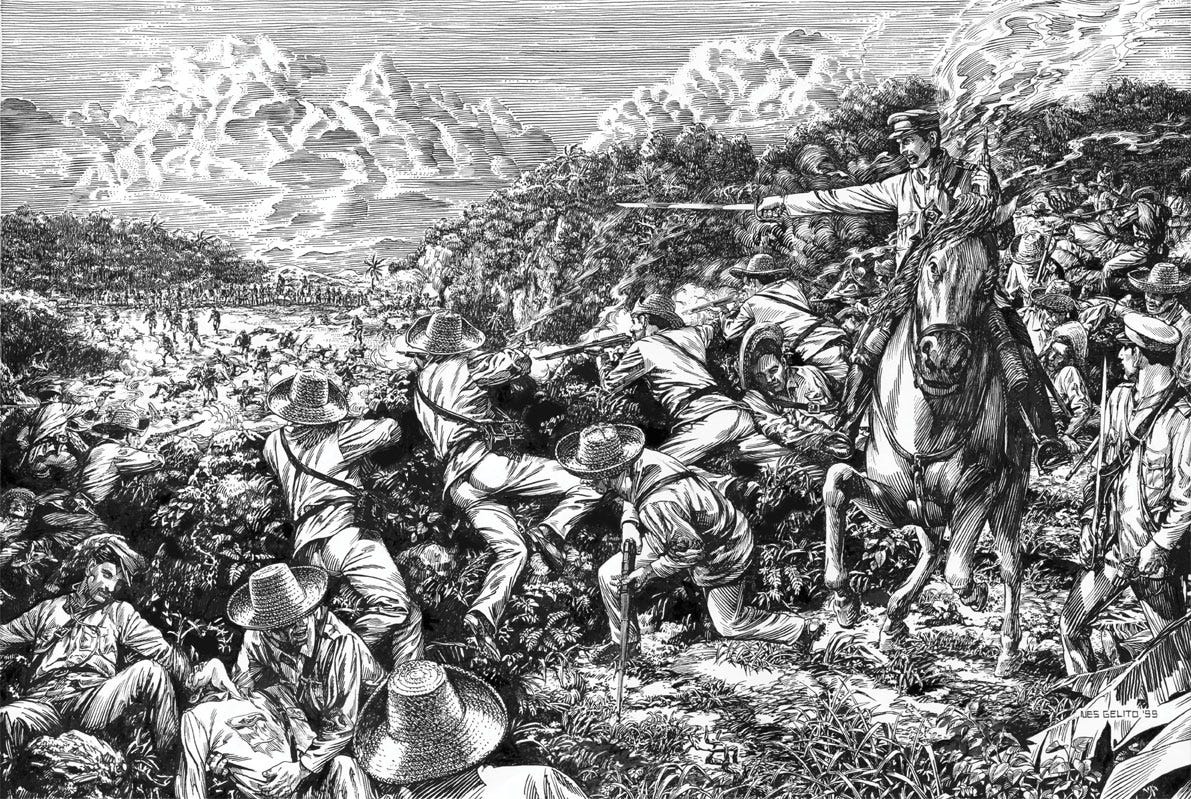Member-only story
The Philippine Thermopylae at Tirad Pass

Most Americans do not know that the Philippines were part of the United States from 1898–1946. Even fewer remember how our involvement began there.
Some dimly recall learning about the Spanish-American War, an ignominious mugging of a crumbling colonial power that netted the US de facto control of Cuba and outright ownership of Puerto Rico, Guam and the Philippines.
Spain barely put up a fight in the Pacific. Shortly after midnight on May Day 1898, six US Navy ships steamed into Manila Harbor. At sunrise, they opened fire. Shortly after noon, the Spaniards lowered their flags to signify surrender. In the space of a few hours, the Americans sank eight ships and slew nearly eighty Spaniards while losing zero vessels and just one sailor— to heatstroke and a heart attack.
Taking control of the colonial capital was the easy part. Overwhelmed by a longstanding Filipino insurrection, the Spanish viceroy barely controlled anything else in the archipelago.
The hard part would be taking the islands from the Filipinos.
Waging the entire Spanish-American War took only four months and cost the US only 345 battle deaths (though another 2,500 servicemen died of tropical diseases).
By contrast, crushing most military resistance in the Philippines took fifteen years (1898–1913), slew 5,000 American soldiers and killed perhaps 300,000 Filipinos. Civilians comprised the bulk of islander deaths, with war-related disease and starvation claiming more lives than simple massacres.
Most Americans have never heard of this unfortunate conflict, but it holds an important place in our military history, a milestone marking a continuous trail of blood from Wounded Knee to My Lai. A sick subculture of former Indian fighters brought the brutal race war tactics of the Wild West to the Philippines. The atrocities committed by deviant soldiers in the islands — indiscriminate killing, taking trophies like severed ears from the dead, even the racial epithet “gook” — got recycled against the Japanese during World War II, against Koreans and Chinese during the police action of 1950–53, and against the Vietnamese in the ’60s and ‘70s.
